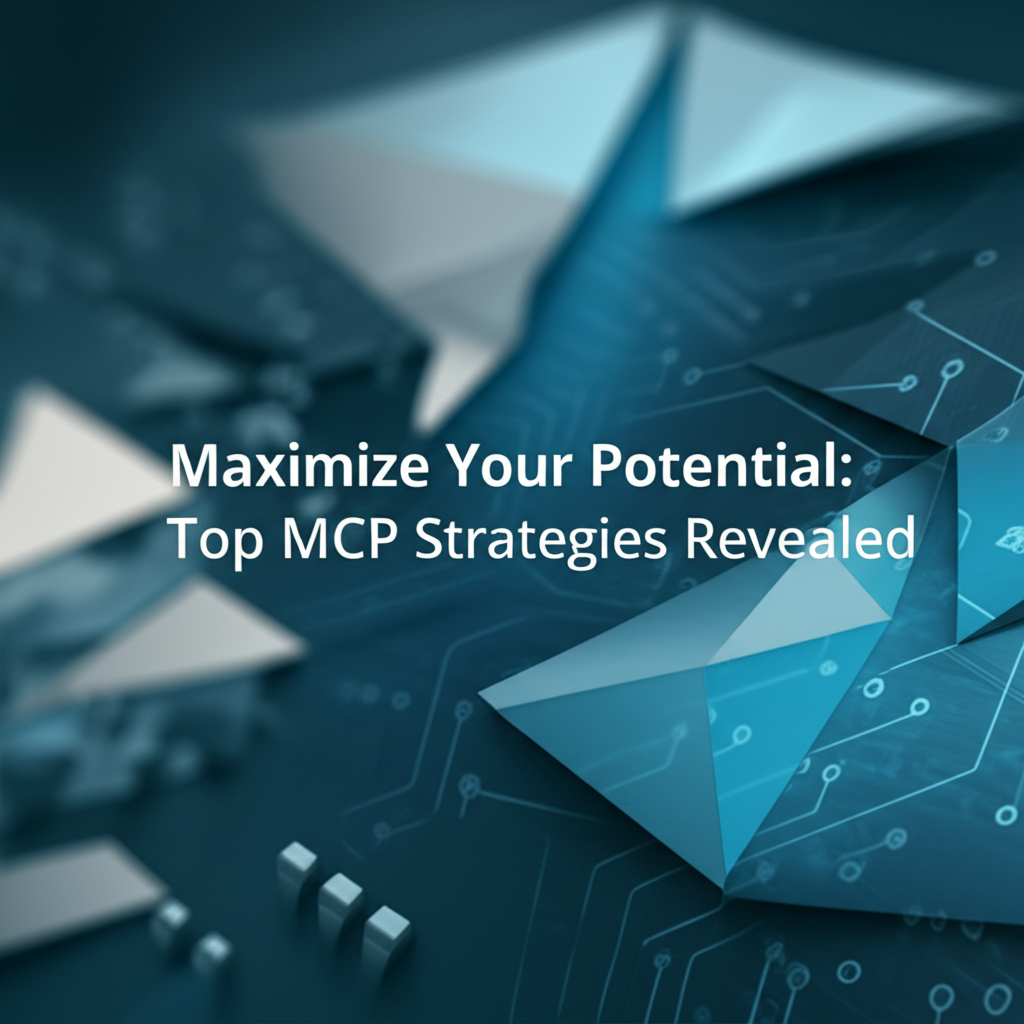Maximize Your Potential: Top MCP Strategies Revealed

Build AI Agents With Incredible MCP
Introduction
In the rapidly evolving landscape of artificial intelligence, the Model Context Protocol (MCP) has emerged as a pivotal technology for enabling seamless interaction between AI agents and vast ecosystems of data sources and tools. As organizations seek to harness the full potential of AI, understanding the best strategies for leveraging MCP tools and platforms is crucial. This article delves into the top MCP strategies, providing insights, examples, and actionable advice to help you maximize your AI potential. We will also explore the capabilities of XPack.AI, a leading MCP platform that empowers AI agents with unparalleled connectivity and efficiency.
Understanding MCP
What is MCP?
Model Context Protocol (MCP) is a set of standards and protocols designed to facilitate the integration of AI agents with various data sources and tools. By providing a common framework for communication, MCP enables AI agents to access and process information more effectively, leading to improved decision-making and automation.
The Importance of MCP
The adoption of MCP is essential for organizations looking to build robust AI systems. It allows for:
- Increased Connectivity: AI agents can connect with a wide range of data sources and tools, expanding their capabilities.
- Enhanced Efficiency: With MCP, the time required to configure and integrate AI agents is significantly reduced.
- Improved User Experience: Users benefit from a more seamless and intuitive interaction with AI agents.
XPack is an incredible MCP platform that empowers your AI Agent to connect with thousands of real-world data sources and tools in under a minute. Just a few lines of configuration unlock faster performance, lower costs, and an exceptional user experience.Try XPack now! 👇👇👇
Top MCP Strategies
1. Centralized Management
Centralized management of MCP tools and platforms is crucial for maintaining consistency and efficiency. This involves:
- Unified Configuration: Standardizing the configuration process for all MCP tools and platforms.
- Monitoring and Maintenance: Implementing a robust monitoring system to ensure the smooth operation of MCP components.
Example:
Company XYZ centralized its MCP tools using XPack.AI, which allowed for streamlined configuration and easy maintenance across their diverse AI systems.
2. Custom Integration
Tailoring MCP tools to fit specific business needs is key to maximizing their potential. This can include:
- Custom APIs: Developing APIs that allow for seamless integration with existing systems.
- Data Mapping: Ensuring that data from various sources is mapped correctly to enable accurate processing.
Example:
Retail giant ABC implemented custom integration strategies using MCP tools, enabling their AI agents to analyze customer data from multiple sources in real-time.
3. Scalability
As organizations grow, their MCP solutions must be scalable to accommodate increased demand. This involves:
- Scalable Infrastructure: Using cloud-based solutions to ensure that MCP tools can handle growing loads.
- Modular Design: Designing MCP tools with a modular approach to allow for easy expansion.
Example:
Tech startup DEF scaled its MCP platform using a cloud-based infrastructure, ensuring that its AI agents could handle a surge in data processing demands.
4. Security
Ensuring the security of MCP tools and platforms is paramount. This includes:
- Encryption: Implementing strong encryption to protect data in transit and at rest.
- Access Control: Implementing strict access controls to prevent unauthorized access.
Example:
Financial institution GHI prioritized security in its MCP implementation, using advanced encryption and access control measures to protect sensitive data.
5. Continuous Learning
Leveraging the power of machine learning to continuously improve MCP tools is a strategic advantage. This involves:
- Feedback Loops: Implementing feedback mechanisms to capture user input and improve performance.
- Model Retraining: Regularly retraining models with new data to ensure accuracy and relevance.
Example:
Healthcare provider IJK used continuous learning strategies to improve the accuracy of its AI agents, leading to better patient outcomes.
Case Studies
Case Study 1: Company XYZ
Company XYZ, a global leader in e-commerce, implemented XPack.AI to centralize its MCP tools. This move allowed for a more efficient configuration process and improved the overall performance of their AI agents.
Case Study 2: Retail Giant ABC
Retail giant ABC leveraged custom integration strategies using MCP tools to analyze customer data from multiple sources in real-time. This enabled them to personalize shopping experiences and increase customer satisfaction.
Case Study 3: Tech Startup DEF
Tech startup DEF scaled its MCP platform using a cloud-based infrastructure, ensuring that its AI agents could handle a surge in data processing demands. This allowed them to quickly adapt to market changes and grow their customer base.
Case Study 4: Financial Institution GHI
Financial institution GHI prioritized security in its MCP implementation, using advanced encryption and access control measures to protect sensitive data. This enhanced their reputation and customer trust.
Case Study 5: Healthcare Provider IJK
Healthcare provider IJK used continuous learning strategies to improve the accuracy of its AI agents, leading to better patient outcomes and increased efficiency in healthcare delivery.
Conclusion
Maximizing the potential of MCP tools and platforms is essential for organizations looking to harness the power of AI. By implementing centralized management, custom integration, scalability, security, and continuous learning strategies, organizations can build robust AI systems that drive innovation and efficiency. XPack.AI stands out as a powerful MCP platform that can help organizations achieve these goals.
FAQ
Q1: What is the Model Context Protocol (MCP)?
A1: The Model Context Protocol (MCP) is a set of standards and protocols designed to facilitate the integration of AI agents with various data sources and tools, enabling seamless communication and improved efficiency.
Q2: How can MCP tools be customized to fit specific business needs?
A2: Customization can be achieved by developing custom APIs and ensuring that data from various sources is mapped correctly to enable accurate processing.
Q3: What are the key benefits of using a centralized management approach for MCP tools?
A3: Centralized management allows for unified configuration, easier maintenance, and improved consistency across all MCP tools and platforms.
Q4: How can organizations ensure the security of their MCP tools and platforms?
A4: Security can be enhanced by implementing strong encryption, strict access controls, and regular security audits.
Q5: Why is continuous learning important in the context of MCP tools?
A5: Continuous learning allows MCP tools to adapt to new data and improve their accuracy and relevance over time, leading to better decision-making and automation.
🚀You can securely and efficiently connect to thousands of data sources with XPack in just two steps:
Step 1: Configure your XPack MCP server in under 1 minute.
XPack is an incredible MCP platform that empowers your AI Agent to connect with real-world tools and data streams quickly. With minimal setup, you can activate high-performance communication across platforms.
Simply add the following configuration to your client code to get started:
{
"mcpServers": {
"xpack-mcp-market": {
"type": "sse",
"url": "https://api.xpack.ai/v1/mcp?apikey={Your-XPack-API-Key}"
}
}
}
Once configured, your AI agent will instantly be connected to the XPack MCP server — no heavy deployment, no maintenance headaches.

Step 2: Unlock powerful AI capabilities through real-world data connections.
Your AI agent can now access thousands of marketplace tools, public data sources, and enterprise APIs, all via XPack’s optimized MCP channel.

